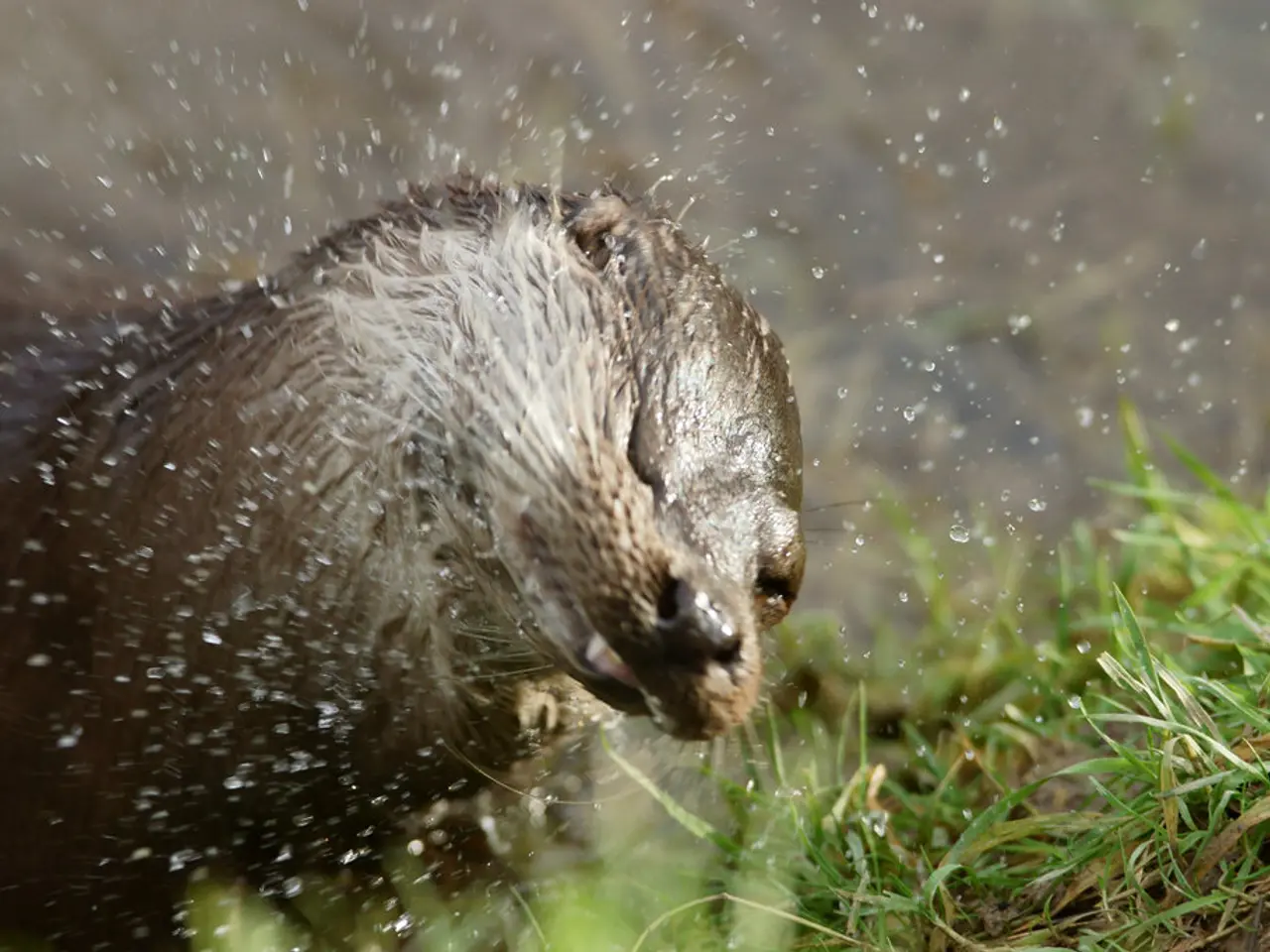Determined environmental advocates aim to decrease the nation's fish-otter population
In the heart of Germany, a contentious issue surrounding the otter population in Bavaria has been making waves. The German Environmental Aid (DUH) and the Bavarian Nature Conservation Association (BN) have taken their concerns to the Bavarian Administrative Court (VGH) in Munich, demanding a review and eventual repeal of the current hunting regulations that allow the capture and killing of the strictly protected otter.
The controversy began when the governments of Upper Palatinate and Upper Franconia issued provisions in recent months, permitting the shooting of otters under specific conditions in certain areas. This new regulation, which came into force about a year ago, has sparked intense debate among environmentalists, who argue that it violates the protected status of the otter under European species protection laws and the FFH (Fauna-Flora-Habitat) directive.
The environmentalists' application to the VGH aims for a judicial review of the law. They object to the year-round permission for otter hunting at fishponds, the use of non-selective traps, night vision technology, and artificial light in hunting, which they claim cannot reliably ensure the protection of females with dependent young. They also oppose the regulation allowing the shooting of young otter animals.
Sascha Müller-Kraenner, DUH Federal Managing Director, has stated that Bavaria must prioritise nature conservation in its hunting laws to protect endangered species like the otter. Meanwhile, the minister responsible for hunting, Hubert Aiwanger (Free Voters), maintains that the otter poses a threat to rare species and biotopes.
The VGH has halted the application of the Upper Palatinate authority's provision, meaning no otters may be killed until the Administrative Court in Regensburg conducts a main procedure. This temporary reprieve offers a glimmer of hope for the otter population in Bavaria, which has been struggling to recover from near extinction.
The otter, a carnivorous mammal that primarily feeds on fish, requires a substantial amount of food. An otter needs at least 400 to 500 kilograms of food per year, about 95 percent of which is fish. If otters feed in ponds, not only the actual consumption is a danger, but also the stress that the fish feel in the face of the threat: They then eat less and are more susceptible to diseases.
Pondkeepers, however, argue that otters endanger their stocks and threaten the entire industry. This conflict highlights the delicate balance between conservation and industry in Bavaria, a balance that the VGH will now have to address.
The otter has been a long-standing topic for the Bavarian Administrative Court. In the spring of 2024, the VGH declared a state regulation invalid, offering a precedent for the current case. Legal disputes about the killing of otters have been ongoing for years, and this latest application marks another significant step in the ongoing battle for the otter's protection in Bavaria.
[1] Source: German Environmental Aid (DUH) and Bavarian Nature Conservation Association (BN) press release, dated [insert date].
- The science and environmental-science communities, such as the German Environmental Aid (DUH) and the Bavarian Nature Conservation Association (BN), question the validity of recent hunting regulations concerning otters, arguing they violate European species protection laws and the FFH directive.
- The connectedness of health-and-wellness, fitness-and-exercise, and the environment is raised in the debate, as experts point out that otters, being carnivorous mammals that primarily feed on fish, can negatively impact fish populations and potentially lead to disease outbreaks if their numbers aren't managed correctly.
- Climate-change and environmental-science discussions are becoming increasingly relevant in Bavaria, as the VGH will now consider the balance between nature conservation and industry in regards to otter hunting, potentially setting a precedent for future animal protection laws and conservation efforts in response to changing environmental conditions.




